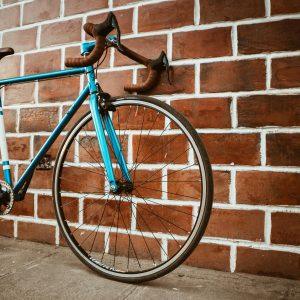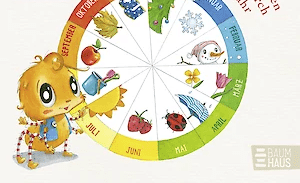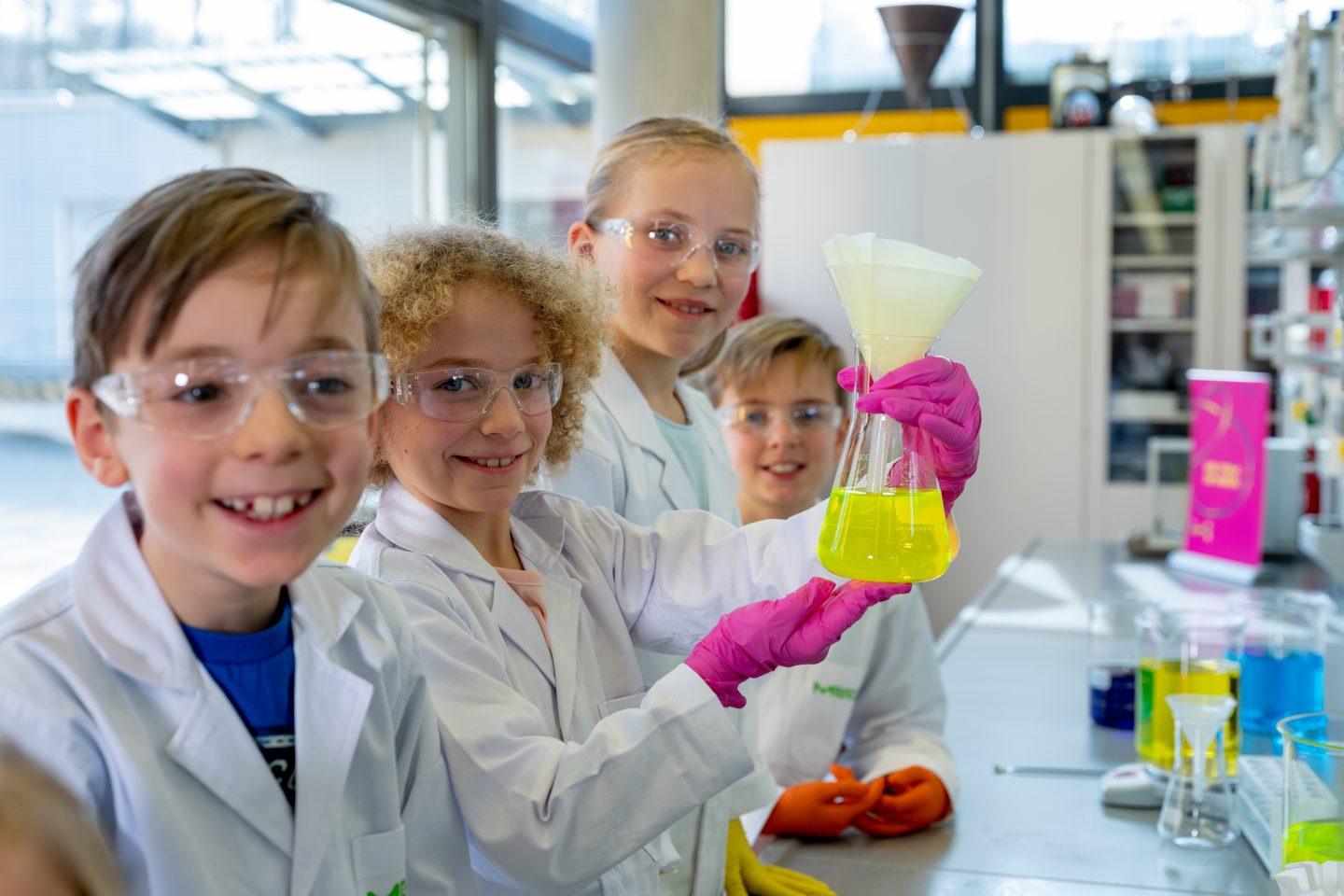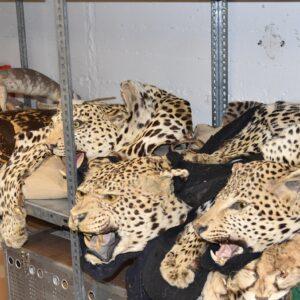Cooperation between science and industry: An insight into the junior chemistry lab
Dr. Andrea-Katharina Schmidt (TU Darmstadt) and Dr. Thomas Eberle (Merck) in conversation with Alexander Götz, DA.news
The Junior Chemistry Lab at the Technical University of Darmstadt demonstrates how practical and exciting science can be. In cooperation with Merck, around 2,500 students experiment there every year – from their first contact with chemical reactions to complex sustainability topics. Dr. Andrea-Katharina Schmidt, head of the Junior Lab, and Dr. Thomas Eberle, head of STEM* promotion at Merck, explain in an interview how young people are inspired by science through hands-on work, modern technologies, and socially relevant topics.
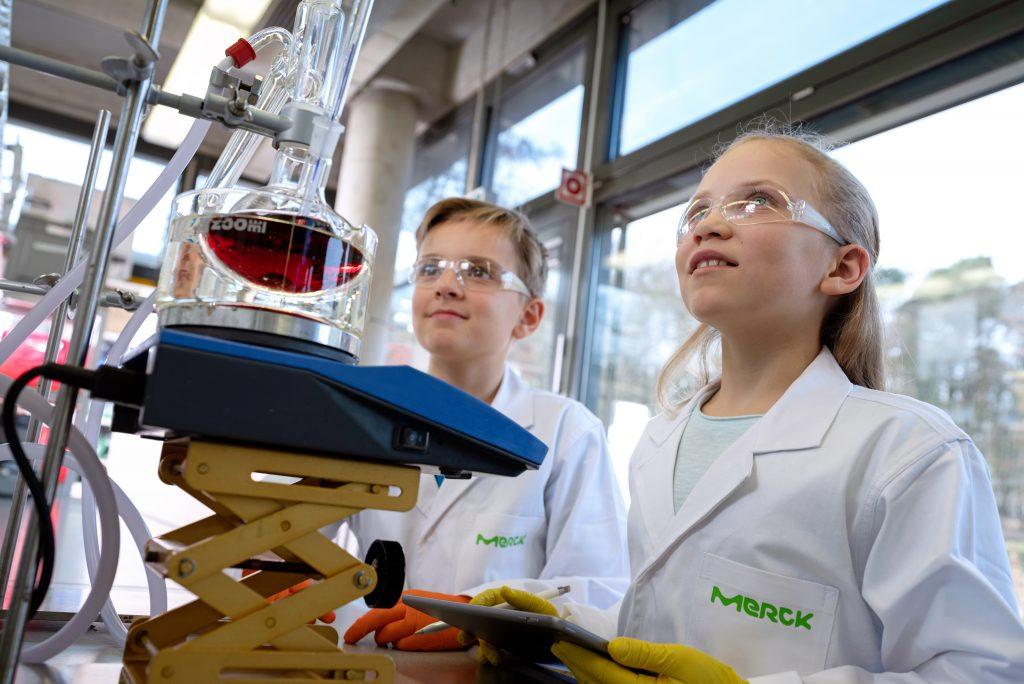
Dr. Schmidt, Dr. Eberle, how did the Junior Chemistry Lab come about?
Dr. Andrea-Katharina Schmidt:
I wasn't at TU Darmstadt back then, but the lab was born from a shared vision between Merck and TU Darmstadt. Together, we developed the idea of creating a place where young people could experience research firsthand – with professional equipment and in a safe environment. At the same time, there was already a close strategic partnership between TU Darmstadt and Merck at the research, junior researcher, and education levels. The junior lab thus became a visible link between schools, universities, and industry.
Dr. Thomas Eberle:
Exactly. Merck and TU Darmstadt have been working closely together for many years – on research, scholarships, and awards. At some point, it became clear: We have to do something for the next generation, and not just during their studies. That's how the Merck-TU Darmstadt Junior Lab came about as a joint educational project – and it has since become a real success story.
What are your goals for the junior lab – is it about promoting young talent, communicating science, or both?
Dr. Andrea-Katharina Schmidt:
Both. On the one hand, we aim to spark interest in natural sciences, and on the other hand, to promote scientific thinking. Students should understand that chemistry is not abstract, but directly related to their everyday lives. We show that chemical knowledge can be used to solve problems – from energy issues to sustainability.
Dr. Thomas Eberle:
Education is a top priority for Merck. We want to provide children and young people with barrier-free access to science. The lab day is free for schools, and all materials are provided. This is important to us because it creates genuine equal opportunities – regardless of whether a school has a large or small budget.
How closely is Merck involved in the work in terms of content and concept?
Dr. Thomas Eberle:
The day-to-day operations run completely independently at TU Darmstadt. The scientific and teaching work is handled by the experts there – and that's a good thing. We see ourselves more as a partner at a strategic level: We provide financial support, regularly exchange ideas on broader topics, and contribute ideas, for example, on sustainability or social responsibility. But the content is developed at the university.
Dr. Andrea-Katharina Schmidt:
This independence is crucial. We share many thematic interests – such as sustainability or digitalization – but the didactic implementation is our responsibility. It's a very open and trusting collaboration.
You mentioned sustainability. What role does it play in everyday laboratory work?
Dr. Andrea-Katharina Schmidt:
A very significant one. Sustainability has long been a central theme in chemistry. We address societal issues such as resource conservation, recycling, and bioplastics, and connect them with practical experiments. To this end, we work closely with Prof. Markus Prechtl's Chemistry Education research group to translate innovative content into competency-oriented experiments, which we then test and evaluate. For example, school classes analyze how plastics can be produced from renewable raw materials or how packaging can be recycled.
Dr. Thomas Eberle:
For us as a company, this topic is also omnipresent. Chemistry is part of the solution, not the problem – it can contribute to reducing CO₂ emissions, making processes more efficient, and saving energy. In the lab, this becomes a very practical experience. The young people realize that chemistry is everywhere – in batteries, in medicines, in packaging.
Dr. Andrea-Katharina Schmidt:
And they realize that sustainability doesn't just "sound green," but requires complex decisions. We also try to promote evaluation skills—that is, the ability to critically assess things. What is truly sustainable, and what is just a label? This kind of reflection is just as much a part of science education today as experimentation itself.
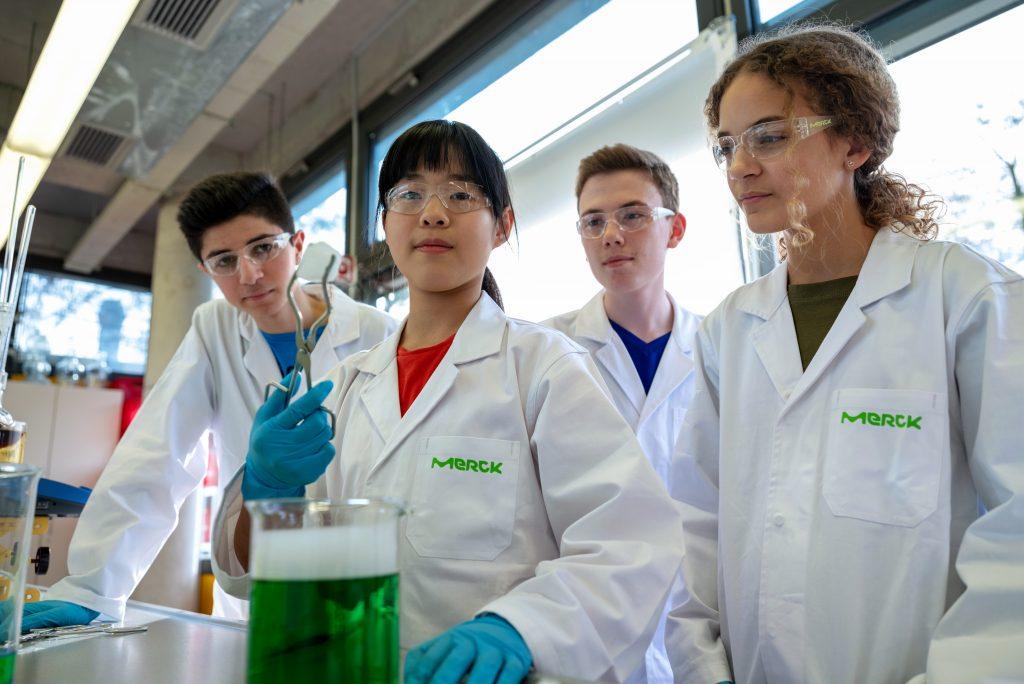
What role do digitalization and new forms of learning play?
Dr. Andrea-Katharina Schmidt:
Digitalization accompanies us on several levels. On the one hand, we use digital data acquisition and iPads in the classroom to demonstrate modern research. On the other hand, it's about training young people in how to handle data: How do I interpret measurement results, how do I critically evaluate them? This, too, is part of basic scientific education.
Dr. Thomas Eberle:
I find this aspect very important. Chemistry education is changing: it's no longer just about learning facts, but also about understanding that scientific findings always need to be evaluated. Sustainability, energy, electromobility – these are not clear-cut topics. Young people need to learn to argue, weigh the evidence, and form well-founded opinions.
How is the success of the junior lab measured?
Dr. Andrea-Katharina Schmidt:
Of course, it's not easy to quantify. We see the students' enthusiasm directly – and we find that many teachers return regularly. Some students who worked here as tutors later lead their own classes in the lab. It's a wonderful cycle. In total, around 2,500 students visit the lab each year – the same number as in biology. We have more requests than we can accommodate, and that speaks for itself.
Dr. Thomas Eberle:
The network that has emerged here is impressive. Many teachers are bringing the concept to their schools, even including visits to extracurricular learning locations in their school curricula. For me, this is the best proof that the Junior Lab is firmly established in the educational landscape.
What personally appeals to you about introducing young people to chemistry in a practical way?
Dr. Andrea-Katharina Schmidt:
The best part is when you see that "aha" moment for the students. Especially skeptical teenagers suddenly blossom in the lab, become curious, and gain confidence. Even elementary school children are thrilled when they wear lab coats and safety goggles – they feel like real researchers. These moments motivate me the most.
Dr. Thomas Eberle:
I am driven by the hope that young people will rediscover issues that are important to society. I want them to experiment beyond the screen, to create, to question things. We as a generation have made enough mistakes – now it's about fostering a new, responsible generation that takes ownership.
Dr. Andrea-Katharina Schmidt:
And for that, we need teachers who make such experiences possible – by having the courage to take their classes outside and discover new learning locations.
Dr. Thomas Eberle:
Exactly. And not all young people are "addicted to their phones" or unmotivated, as you sometimes hear. There are an incredible number of bright, dedicated young people. We want to help them discover their enthusiasm for science – regardless of whether they later become chemists, engineers, or craftspeople.
Finally: Do you have a personal favorite experiment?
Dr. Andrea-Katharina Schmidt:
(laughs) That's not so easy to say! I come from organic chemistry, so I particularly like syntheses – reactions where you create something new from several substances. But classics like experiments with liquid nitrogen never lose their appeal. When we make ice cream with it, it's not just fun for children, but also a wonderful example of how chemistry works.
Dr. Thomas Eberle:
I find moments like these wonderful. When you see that science can be enjoyable, that it is creative and vibrant – then you've done everything right.
Liveable Darmstadt
powered by MerckMerck is actively committed to a region worth living in. Together with its partners, the company creates an environment where science education, sports, and the arts can flourish. Through its support of social institutions and charitable projects, Merck contributes to a better community in Darmstadt.
In the field of science education, the collaboration between Merck and the Technical University of Darmstadt plays a central role. Together, they operate student laboratories in biology and chemistry. Furthermore, Merck supports STEM* activities at schools in the region and sponsors numerous competitions for young STEM talents, including "Jugend forscht" (Young Researchers), the International Chemistry Olympiad, and Mathematics Day. Every year, Merck awards the Merck Abitur Prize to talented students from Darmstadt and the surrounding area and offers professional development courses for teachers.
*The now well-established acronym STEM stands for the fields of mathematics, computer science, natural sciences and technology
Featured image: Photographic studio Eva Speith, Darmstadt”.

